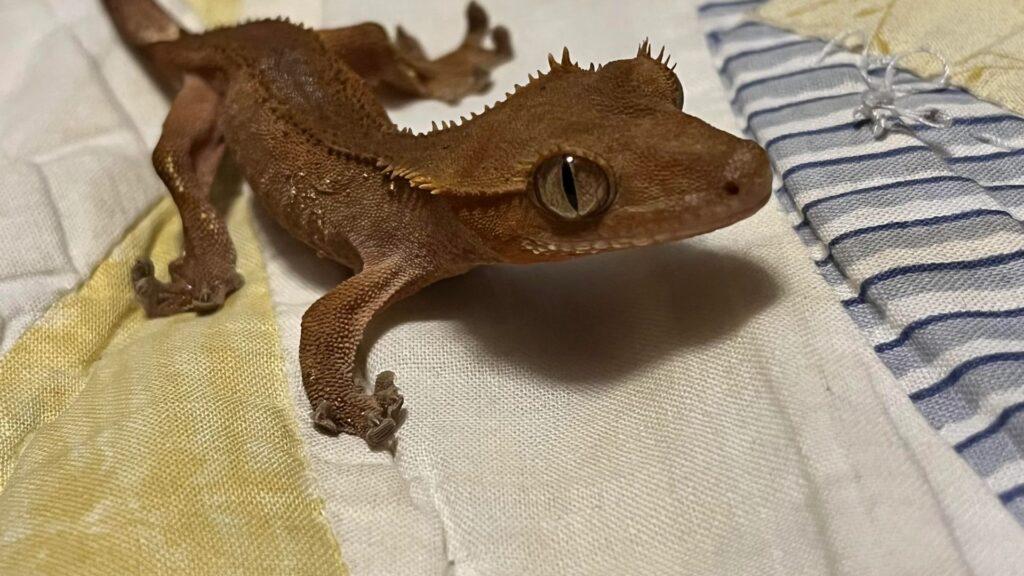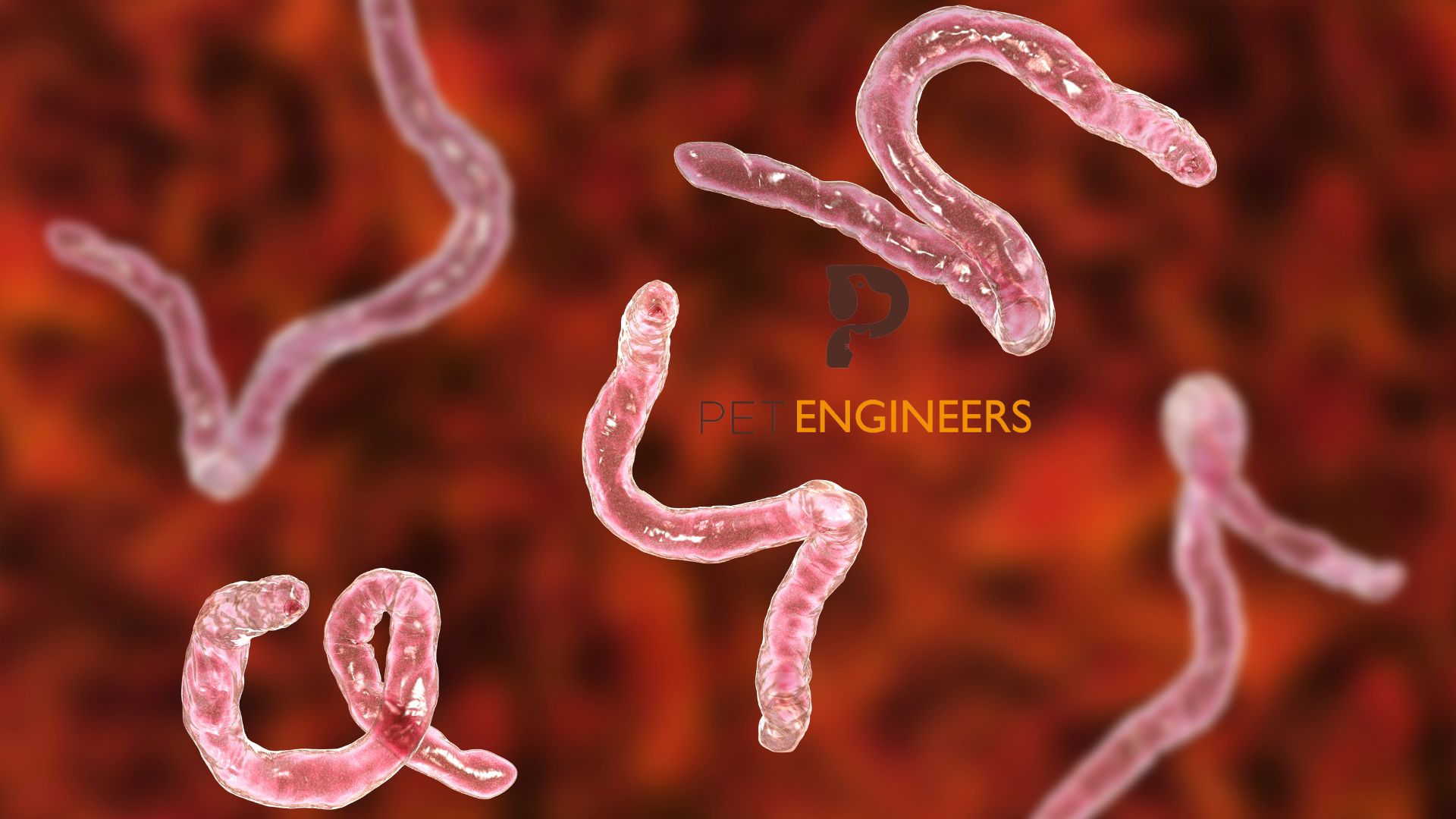
Key Takeaway:
- Crested geckos can suffer from mites, lice, ticks, and intestinal parasites.
- If you suspect that your pet is suffering from parasites, then seeking veterinary help is crucial.
- Proper husbandry and quarantining new pets can help prevent parasitic infestations in crested geckos.
Crested geckos are a popular pet species known for their unique appearance and gentle nature.
However, they are also prone to parasitic infections which can affect their health and well-being.
In this article, we will discuss the common types of parasites found in crested geckos and provide a comprehensive guide on how to identify, treat, and prevent parasitic infections.
Common Parasites Found in/on Crested Geckos
Crested geckos can be infected by a variety of parasites including mites, ticks, lice, and intestinal parasites.
- Mites are small arachnids that feed on the blood of crested geckos, causing skin irritation and anemia.
- Ticks are ectoparasites that attach themselves to the skin of crested geckos and feed on their blood.
- Lice are small insects that feed on the skin and scales of crested geckos, causing itching and skin irritation.
- Intestinal parasites, such as nematodes and coccidia, can infect the digestive tract of crested geckos and cause digestive problems, weight loss, and lethargy.
It is important to regularly monitor your crested gecko for signs of parasitic infections and seek veterinary treatment if necessary.
Early detection and treatment can prevent serious health problems and ensure the well-being of your pet.

How Do I Know If My Crested Gecko Has Parasites?
There are several signs that may indicate your crested gecko has parasites:
Itching or scratching
If your crested gecko is frequently scratching or rubbing against objects, it may indicate an infestation of mites or lice.
Skin irritation
Mites, ticks, and lice can cause skin irritation and redness, resulting in patches of missing scales or scabs on your crested gecko’s skin.
Weight loss
Intestinal parasites can cause digestive problems and weight loss in your crested gecko.

Diarrhea
Intestinal parasites can cause diarrhea and a change in the consistency and color of your crested gecko’s poop..
Lethargy
Parasitic infections can cause your crested gecko to become sluggish and inactive.
If you suspect your crested gecko has parasites, it is important to seek veterinary treatment as soon as possible to prevent further health problems.
A veterinarian can diagnose the type of parasite and provide appropriate treatment.
How To Treat Parasites in Your Crested Gecko
The treatment for parasites in crested geckos depends on the type and severity of the infection. Here are some general guidelines:
- Mites, ticks, and lice: Topical treatments, such as mite sprays and shampoos, can be used to kill these ectoparasites. Your veterinarian may also prescribe oral medications.
- Intestinal parasites: Antiparasitic medications, such as metronidazole and praziquantel, can be used to treat intestinal parasites. Your veterinarian may also recommend a change in diet to support your crested gecko’s digestive health.
It is important to follow the treatment plan prescribed by your veterinarian to ensure the complete elimination of parasites.

In some cases, multiple treatments may be necessary to completely eradicate the parasites.
Additionally, it is important to clean your crested gecko’s enclosure and wash any affected objects to prevent reinfection.
If you are unsure about how to treat your crested gecko’s parasites, it is best to consult with a veterinarian who is experienced in reptile medicine.
They can provide a proper diagnosis and treatment plan to help your pet recover from the infection.
How Do I Get Rid of Parasites on My Crested Gecko?
Getting rid of parasites on your crested gecko requires a combination of medical treatment and environmental management.
Here are the steps you can take to eliminate parasites from your crested gecko’s life:
Medical treatment
Consult a veterinarian experienced in reptile medicine to diagnose the type of parasite and provide appropriate treatment, such as topical treatments, oral medications, or antiparasitic drugs.
Cleaning the environment
Clean your crested gecko’s enclosure thoroughly, including all objects and surfaces, to remove any parasite eggs or larvae.
Wash all objects in hot water or disinfect them with a reptile-safe cleaner.
Maintaining hygiene
Implement a regular cleaning schedule for your crested gecko’s enclosure to prevent future infestations.
Wash your hands before handling your crested gecko and its objects to prevent the spread of parasites.
Monitoring your crested gecko’s health
Regularly monitor your crested gecko for signs of parasitism and seek veterinary treatment if necessary.
Early detection and treatment can prevent serious health problems.

By following these steps, you can help get rid of parasites on your crested gecko and keep them healthy and parasite-free.
It is important to seek veterinary treatment as soon as you suspect your crested gecko has parasites to prevent further health problems.
How To Prevent Parasites from Affecting Your Crested Gecko
Preventing parasites from affecting your crested gecko requires good husbandry practices and regular monitoring of their health.
Here are some steps you can take to minimize the risk of parasite infestation:
Maintain a clean and healthy environment
Keep your crested gecko’s enclosure clean and well-maintained, with a proper temperature, humidity, and light cycle.
Offer a balanced diet to support your crested gecko’s overall health and immune system.
Quarantine new pets
Before introducing new crested geckos to your existing pets, quarantine them for several weeks to ensure they are not carrying any parasites.
Avoid exposure to wild animals
Wild animals can carry parasites that can be transmitted to your crested gecko. Avoid exposing your pet to wild animals and their habitats.

Regular check-ups
Take your crested gecko to a veterinarian experienced in reptile medicine for regular check-ups and health screenings to detect parasites early and prevent serious health problems.
Practice good hygiene
Wash your hands before handling your crested gecko and its objects, and avoid sharing personal items, such as towels and clothing, between pets.
By following these preventive measures, you can reduce the risk of parasitic infections and keep your crested gecko healthy and parasite-free.
If you suspect your crested gecko has parasites, seek veterinary treatment as soon as possible.
Summary
Parasitic infections are a common issue in crested geckos.
Early detection and prompt treatment are crucial to prevent serious health problems and ensure the well-being of your pet.
By regularly monitoring for signs of parasitism, cleaning their environment, and implementing good husbandry practices, you can prevent parasites from affecting your crested gecko and keep them healthy.
If you suspect your crested gecko has parasites, it is important to seek veterinary treatment to get an accurate diagnosis and appropriate treatment plan.
With proper care, you can help your crested gecko live a long and healthy life, free from the effects of parasites.

